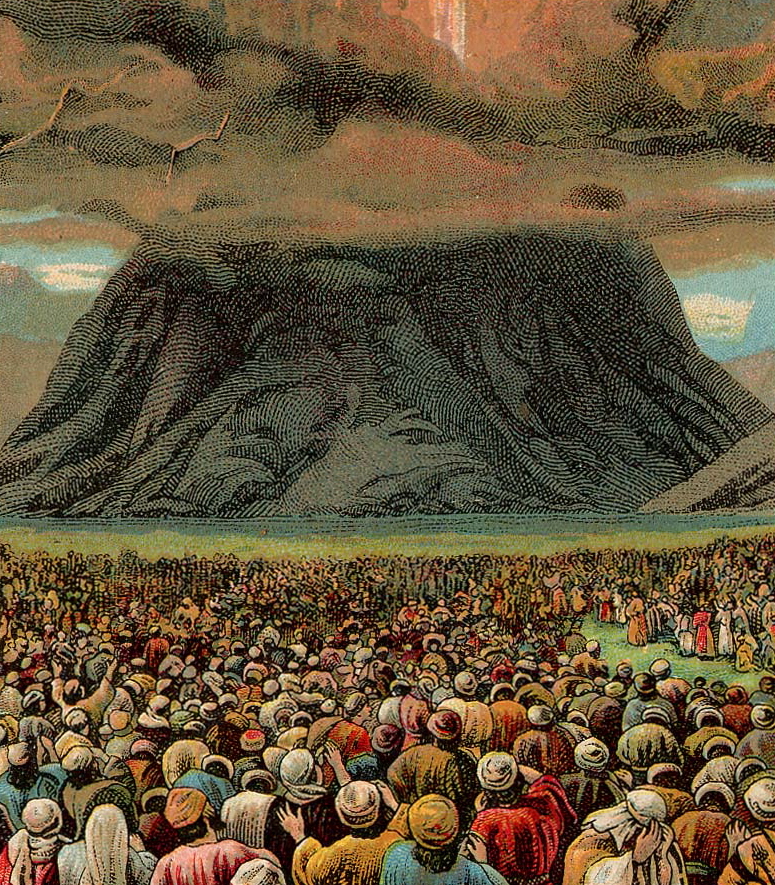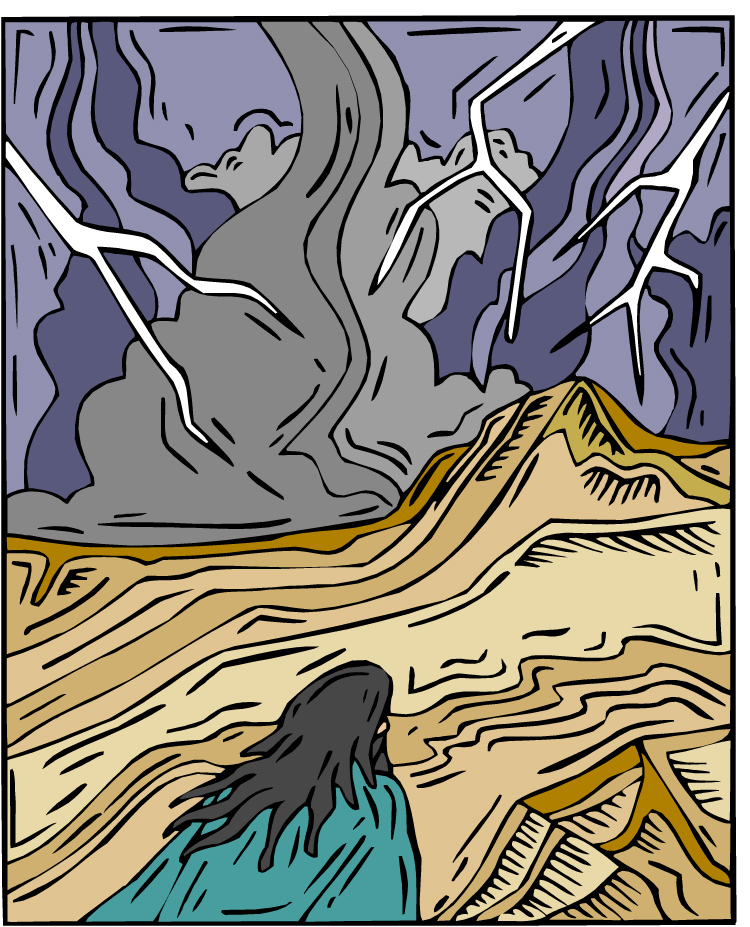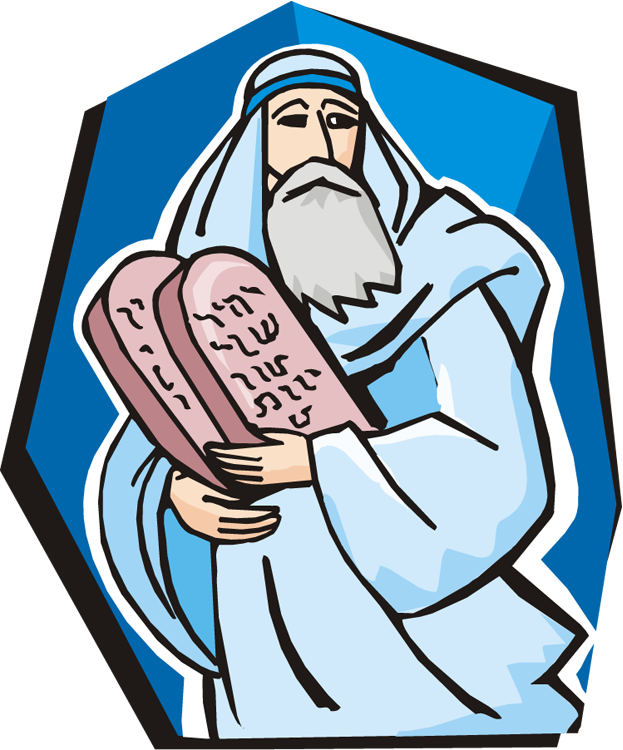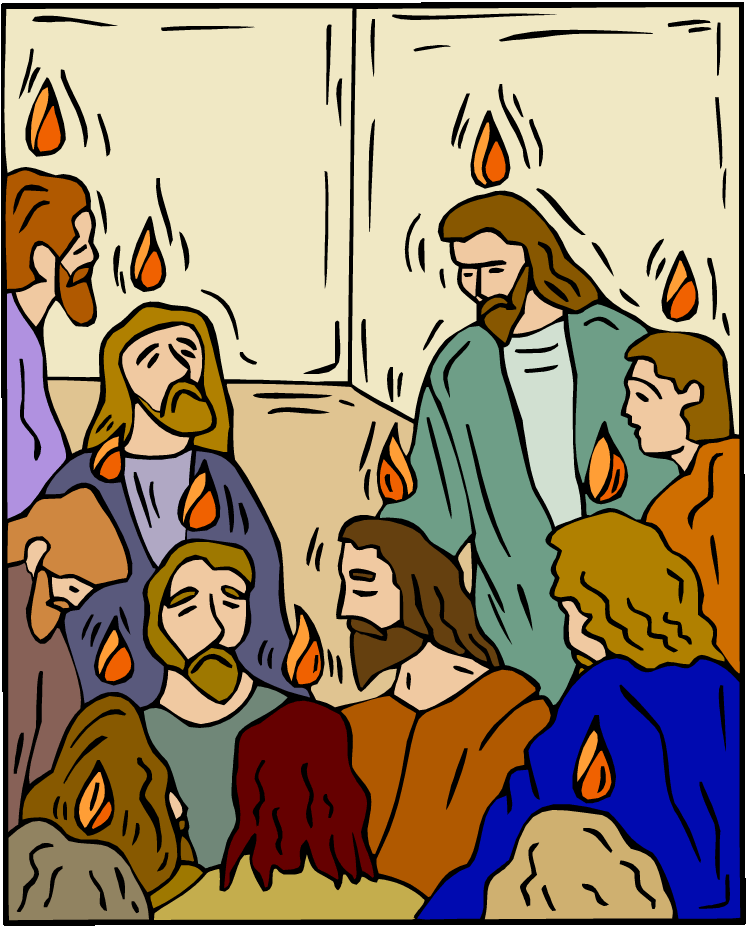
To fully understand Scripture and to extract its applicable meaning to us, we must insert ourselves into the scriptural narrative and ask, what can I learn from this and how does it apply to me? With such an inquiring mind and an open heart, the still small voice of the Spirit of Elohim will begin to whisper insights into our spirit and mind.
This is how the Word of Elohim comes alive to us and how we find spiritual direction—light in the darkness—to guide us in the path of life. With this in mind, let us now discover what we can learn from Exodus chapter 19 as the children of Israel prepared to meet YHVH Elohim on the day of Pentecost (or Shavuot—its Hebrew name).
Insights from Exodus 19
Exodus 19:3, Moses. The name Moses/Moshesh literally means “drawing out or rescued.” What was Moses drawn out of or rescued from? From the waters of the Nile River in Egypt. Water can be a biblical metaphor for humanity, and Egypt a metaphor for Satan’s world. That is to say that Moses was drawn out of or rescued from the seas of humanity. YHVH then used Moses to rescue, draw forth or fish the children of Israel out of the same sea of Satan’s world.

Exodus 19:3, Moses went up. Even before Elohim called Moses, he was willing to go up. Elsewhere in the Psalms, we learn that if we incline our hearts toward YHVH, he will incline himself toward us. Yeshua promised that all those who ask, seek and knock will be rewarded accordingly.
Exodus 19:3, From the mountain. YHVH not only exists, but he exists above the earth on a proverbial mountain far above the human plane. Isaiah declared that YHVH is “high and lifted up.” He is calling us to come up to him. Will we go up to him, or do we love this world too much to answer his call to come up? Twice David the psalmist asks and then answers the question, who will ascend the hill or mountain of YHVH?

YHVH, who may abide in Your tabernacle? Who may dwell in Your holy hill? He who walks uprightly, and works righteousness, and speaks the truth in his heart; he who does not backbite with his tongue, nor does evil to his neighbor, nor does he take up a reproach against his friend; in whose eyes a vile person is despised, but he honors those who fear YHVH; he who swears to his own hurt and does not change; he who does not put out his money at usury, nor does he take a bribe against the innocent. He who does these things shall never be moved. (Ps 15:1–5)
Who may ascend into the hill of YHVH? Or who may stand in His holy place? He who has clean hands and a pure heart, who has not lifted up his soul to an idol, nor sworn deceitfully. He shall receive blessing from YHVH, and righteousness from the Elohim of his salvation. (Ps 24:3–5)
Are you a spiritual mountain climber, or one who is content to be a spiritual low-lander preferring to inhabit the basement of life?
Exodus 19:3, From the mountain. YHVH not only exists, but he exists above the earth on a proverbial mountain far above the human plane. Isaiah declared that YHVH is “high and lifted up.” He is calling us to come up to him. Will we go up to him, or do we love this world too much to answer his call to come up?
Exodus 19:4, Brought you [Israel] to myself. YHVH’s purpose for calling Israel out of Egypt was to bring them to himself. One cannot be of the world and the same time be in Elohim. Yeshua said that his servants cannot serve two masters—Elohim and this world (or mammon). He also declared that though we are in this world, we are not to be of this world. Though we live in this world physically, we are not to be a part of, loyal to or identify with this world spiritually.
Exodus 19:5, If…then. The agreement between Elohim and Israel known as the Mosaic or Siniatic Covenant was conditional. His blessings upon Israel and his elevating them to favored nation status was conditional upon their obeying his voice and walking in covenant with him. It was based on relationship. Is not everything in life that we do based on conditional agreements and relationships with other people and the world around us? There are things we have to do if we want certain outcomes. If we fail to do them, then we pay the price. This includes marriage agreements, employer-employee relationships, friendships, buying a car or house, staying behind a guardrail on the edge of a cliff, following the driving rules of the road, obeying the laws of the land, taking care of our bodies, eating and not eating certain foods, and the list goes on and on. Why should we think that our relationship with our Creator is any different? If we follow his rules, we will be blessed, and if we do not, we will suffer the consequences.

Exodus 19:5, Obey my voice…keep my covenant. Too many times we are inclined to think of the Bible in terms of dos and don’ts—laws and rules. If we stop mid-sentence in verse five, this is what we come up with, and this is off-putting to most people who are naturally averse to rule-keeping. However, obedience to YHVH and his commandments is simply a means to an end as the second half of this verse shows us. It is about relationship with our Creator—about blessings, life and eventually immortality.
Exodus 19:5, Special treasure to me. Why does YHVH want to bring you and me to himself? He wants us to be his own treasured possession. What is your treasured possession? If your house was burning down or you had to flee immediately and could take only one possession, what would it be? That is how YHVH views those who seek and follow him, but much, much more.
Exodus 19:5, Above all people. YHVH exists in heaven, on a proverbial mountain. He invites his people—those who answer his call—to come up to him. He has shown us the way—his way, the way of Torah (i.e. obeying his voice and keeping covenant with him), which is the way up to him. When we come up to him, it will put us above the people around us. That is why the Bible always speaks of “going up to Jerusalem” or “going down to Egypt.” Heaven is above this earth; the earth is below heaven.” Those who are citizens of the kingdom of Elohim are at a higher spiritual plane than those who are of this earth or world. It does not mean that Elohim’s saints are better than anyone else. It just means that they are walking at a higher level spiritually, and that they have been saved by his grace—his unmerited pardon, and that he has divinely enabled them to obey him. Let no man glory in his, wisdom, might or riches but only in the fact that he understands and knows Elohim (Jer 9:24).
Exodus 19:5, For all the earth is mine. Why does YHVH add this phrase after the previous one? What is his point? As the Creator of all things, everything belongs to him; therefore, he determines the rules and on what basis he will elevate people to a special status before him. He delivered Israel out of Egypt and chose Israel to be his own treasured people conditional upon their obeying his voice and walking in covenant with him (v. 5). All of the other religions, man-made philosophies and spiritual paths notwithstanding, there is only one way to Elohim; it is his way.

Exodus 19:6, Kingdom of priests…a holy nation. YHVH had a purpose for elevating his people to that of favored nation status. It was not so that they could just revel in his blessings eating, drinking and making merry until they passed from this mortal scene. No. YHVH had a end game plan for his people then, and he still has the same plan for his people now. It is to taste and see that YHVH is good, that obeying him brings blessings and then to share that good news with those around us. If you are a follower of Yeshua, are you fulfilling your role as his a part of his royal priesthood, holy nation and his own special people to proclaim the praises of him to those who are still dwelling in the darkness of this world and to help bring them into the marvelous light of his Truth as Peter proclaims (1 Pet 2:9)? Or are we just reaping the benefits of YHVH’s grace upon our lives, and living our lives for our own self-centered benefit without fulfilling our end of the deal to be spiritual salt and light to those around us? Is our relationship with YHVH a one-way street where we expect all the benefits without giving anything in return? If so, ask yourself this: How does such a relationship work in a marriage or friendship where one party does everything and the other party does nothing in return? How long can this last before the one doing all the giving says, “Forget it, I’m out of here! This one-sided relationship is no longer worth my time or effort.” Eventually, YHVH will say the same thing to those who are only takers and not givers. They will hear the words, “Depart from me you workers of iniquity, I never knew you.”
Continue reading
